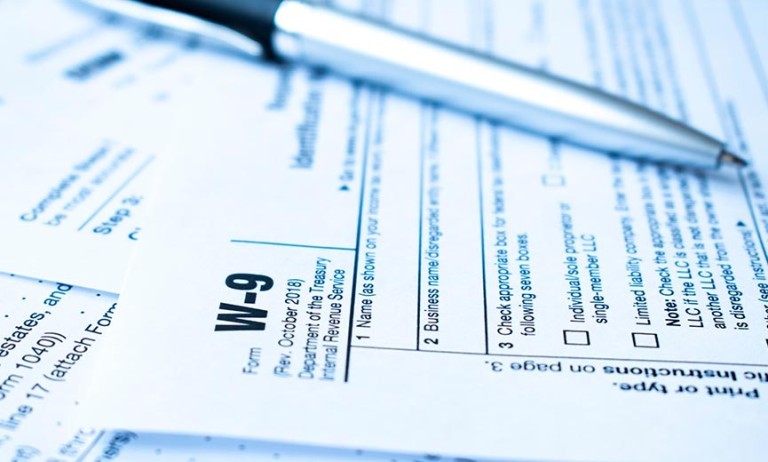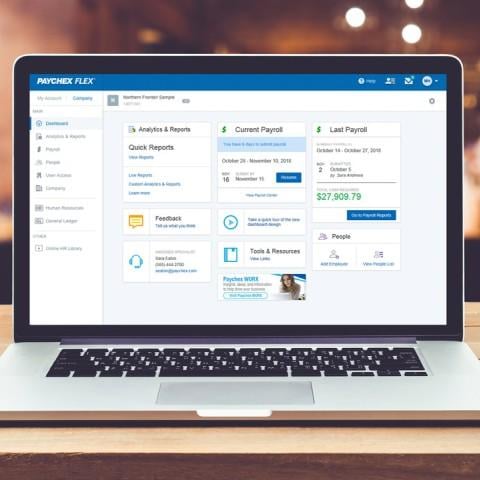- Taxes
- Article
- 6 min. Read
- Last Updated: 12/28/2023
W-2 vs. W-9: The Key Differences You Need To Know

Table of Contents
Workers have specific tax forms to complete before working for a business. The paperwork they need to complete largely depends on their classification as an employee or independent contractor. This can lead to confusion around the difference between W-2 and W-9. Who should receive these forms, and what's the purpose of each? The key differences between W-2 and W-9 are explored below.
What’s the Difference Between W-2 and W-9?
Whether to issue a W-2 or request a completed W-9 depends on whether the individual performing work for your business is an employee or independent contractor. Properly classifying workers should happen well before someone begins working.
Worker classification involves looking at the manner and circumstances in which the business interacts with these individuals. Generally, having W-2 employees means that individuals have been given ongoing work, use equipment that the company has provided for them to do their work, set hours, and have oversight from a direct manager or supervisor. Alternatively, independent contractors who fill out a W-9 are generally assigned specific projects and/or responsibilities and have deadlines for project completion and delivery of services. The IRS also provides a three-factor control test to help employers classify workers correctly.
In what other ways are Form W-2 and Form W-9 different?
| Form W-2 | Form W-9 | |
|---|---|---|
| Purpose | Used to report an employee's taxable compensation and tax withholding | Used by businesses to collect information from independent contractors or freelancers who earn $600 or more from the company. Businesses use W-9 information to generate Form 1099-NEC. |
| Information on the form | Federal and state income tax, FICA withholding, and other withholding for employee benefits | Name and/or business name, EIN or TIN, address, business entity type, and any tax reporting exemptions |
| Who fills it out? | Employers | Independent contractors or other nonemployees |
| Who receives it? | Payroll employees | Employers that work with independent contractors |
| Do copies need to go to a government agency? | Yes, the Social Security Administration | No |
| Filing deadline | Jan. 31 | There is no deadline, but it should be completed before signing contracts or beginning work. |
What Is a W-2?
Form W-2, Wage and Tax Statement, is an annual information return provided to an employee that lists taxable wages and income tax withholding and withholding of Social Security and Medicare taxes. The form also lists various employee benefits (some taxable, some tax-free) and any state income tax withholding.
It's the employer's responsibility to file an annual Form W-2 for each employee, regardless of the compensation paid during the year. Employees will then use the data on this form to file their federal and state taxes. Employers must also send copies of Form W-2 to the Social Security Administration and possibly their state.
What Is Included in a W-2?
A W-2 is a comprehensive return that lists the following information:
- An employee's taxable compensation
- Federal income tax withholding
- Federal Insurance Contributions Act (FICA) withholding
- Where required, state income tax withholding
- Salary reduction amounts for contributions to 401(k) plans and certain other employee benefit plans (e.g., health coverage, group term life insurance, and dependent care assistance)
- Additional withholding (e.g., for state disability benefits or paid family and medical leave benefits in certain states)
Who Receives a W-2?
Employers issue a W-2 form to each employee classified as paid through the employer's payroll and has certain payroll taxes withheld throughout the year. The W-2 records how much an employee was paid in the previous year and how much was withheld from their paycheck for taxes.
What Is a W-9?
Form W-9, Request for Taxpayer Identification Number and Certification, is an IRS form completed by an independent contractor or nonemployee to confirm their personally identifiable information (an individual's taxpayer identification number or a business's Federal Employer Identification Number). Form W-9 can also be used to report other types of payments to the IRS, such as IRA contributions or mortgage interest.
A W-9 doesn't include any tax withholding information because independent contractors are responsible for filing and paying their taxes unless they are subject to backup withholding. In such cases, they must indicate this on their W-9 to inform the business receiving the information that they need to withhold 24% income tax from any invoices.
What Is a W-9 Used For?
A self-employed individual or independent contractor sends a completed W-9 form to the business to which they provide services, and the business uses that information to generate a Form 1099. The 1099 is the form that independent contractors will then use to report their income to the IRS.
What Is Included in a W-9?
When an independent contractor fills out a W-9, they'll be asked to provide the following information:
- Name (if submitting the form as an individual)
- Business name (if submitting the form as a business)
- Address
- Business entity
- Either taxpayer identification number (the individual's Social Security Number) or Federal Employer Identification Number (FEIN)
Who Receives a W-9?
Before a business begins working with an independent contractor or freelancer, they should request that the contractor complete a Form W-9 before signing any contracts or beginning any assignments or projects. The business should keep the form on file and use the information to prepare 1099s. They do not have to report or give copies of the form to the IRS.
When Not To Request a W-9
There are instances when you don't need to request that an individual or business fill out a Form W-9:
- The worker is classified as an employee: As previously mentioned, it's essential that you correctly classify all workers as either employees or independent contractors. A W-9 is for independent contractors and freelancers only. Employees don't fill out a W-9 form.
- Earnings are less than $600: Independent contractors report income only once their earnings are more than $600 in a tax year.
- Non-U.S. independent contractor: Contractors outside the U.S. fill out Form W-8 BEN (for individuals) or W-8 BEN-E (for businesses).
W-2 vs. W-9 FAQs
-
Is a W-9 for a 1099 or W-2?
Is a W-9 for a 1099 or W-2?
The information that an independent contractor provides on a W-9 is used to generate a 1099 form at the end of the year. W-9s and 1099s are IRS tax forms for independent contractors, freelancers, and non-employees who work for a business.
-
Why Would an Employee Fill Out a W-9?
Why Would an Employee Fill Out a W-9?
Individuals classified as employees do not fill out a W-9 form. Independent contractors and freelancers fill out W-9s before they begin working with a business. Upon hire, employees are asked to fill out Form W-4. Employers use data from the W-4 to calculate the amount of federal income tax to withhold from the employee's pay each pay period.
In situations where an independent contractor who provides services to a company is then hired during the year to be an employee, they would fill out a W-9 and receive a 1099 for payments during the time of being an independent contractor, and then be issued a W-2 for payments once they are put on payroll. Businesses must be cautious about changing worker classification from employee to independent contractor or vice versa, particularly if the person continues to perform the same work in the new status.
-
If I Get a W-9, Will I Be Taxed?
If I Get a W-9, Will I Be Taxed?
Yes, assuming you earn at least $600 in a calendar year performing work for a business. Unless you are subject to backup withholding, a company you do business with will not withhold any taxes for you. Independent contractors are solely responsible for tracking their income throughout the year and ensuring they pay the correct amount of taxes to the IRS.
Get W-2 and W-9 Help Today
Worried about taxes? Paychex makes life easier with robust tax services that help you avoid penalties and find credits, helping your business save money.


Tags







